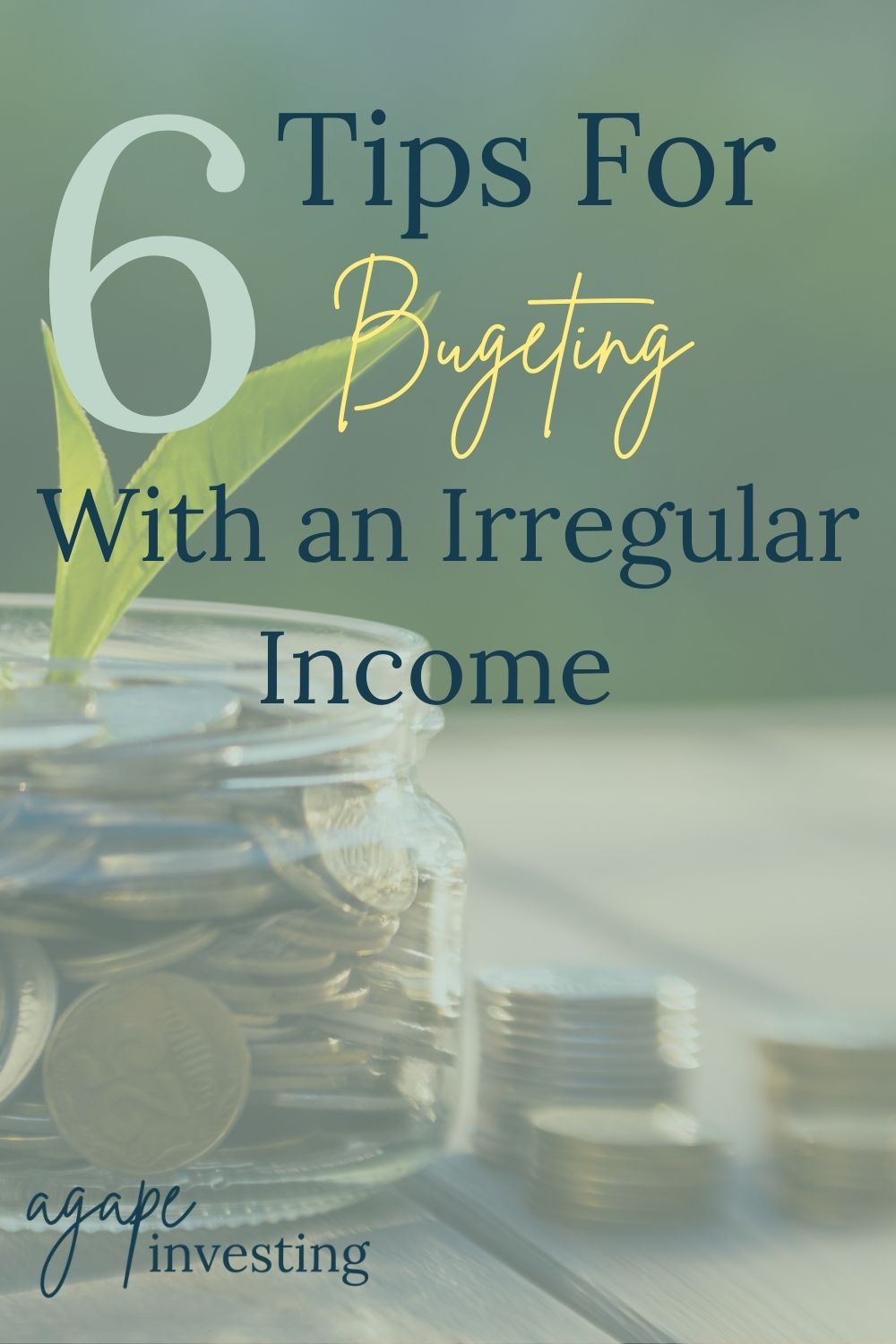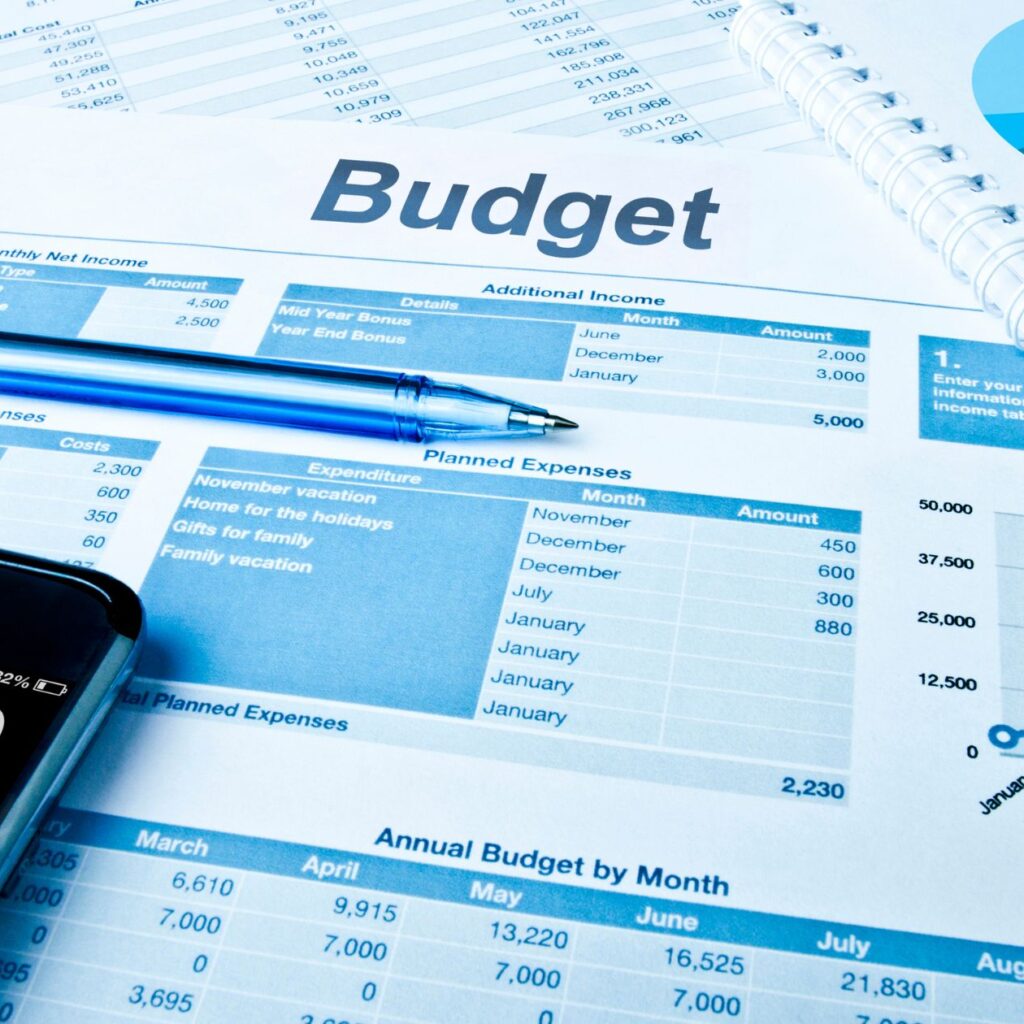
6 Tips for Budgeting With An Irregular Income
If you are a freelancer, contractor, self-employed worker, or someone who gets paid on commission, then you are probably familiar with the turbulent financial life that comes with an irregular income. Some months, you may earn three times what you did the month before, and other months you may make less than half.
Like many freelancers, you may be wondering how to begin budgeting when you don’t know what your income looks like from month to month.
As a financial coach and professional opera singer, I am no stranger to the freelancing world. Despite my irregular income, I have still been able to build a fully-funded emergency fund and pay off $28,000 of debt in two years, without sacrificing the things I love in life.
In this post, I am sharing my top recommendations for budgeting with an irregular income.

6 Tips for Budgeting With An Irregular Income
1. Determine Your Baseline
The first thing you want to do when budgeting with an irregular income is to determine your baseline. This means you want to figure out the amount of money you need to pay for necessities like housing, food, utilities, and transportation.
Once you have this number, you want to weigh it against your lowest earning month over the last year. This will give you an idea of the type of cash cushion you need to build in case you have another low income month in the near future.
2. Create a zero-based budget
Next, you want to create a zero-based budget, which is when you assign a place to every dollar that you earn.
Starting with your baseline (housing, food, utilities, transportation), write down all of your expenses for the month. Once the necessities are accounted for, move on to the other categories of your budget like your emergency fund, savings, debt payments, subscriptions, entertainment, and other miscellaneous expenses.
Once you have listed all anticipated expenses, organize them in order of importance. This will make sure that, even during lower income months, you are able to pay for your necessities first.
3. Track Your Income
This is my favorite, especially if you have never budgeted before!
Each time you get paid throughout the month, track your income in your zero-based budget. Always make sure you use your income to pay for your necessities first, and discretionary purchases later.
I can’t stress this enough! You don’t want to worry about your mortgage or rent payment because you decided to go shopping with your friends the weekend before.
Related: What’s the Difference Between Money Tracking and Budgeting?
4. Build an Emergency Fund
While an emergency fund is important for everyone, it is critical for freelancers.
An emergency fund is money that is set aside for any financial surprises that might come up. This might be a low sales month, medical emergency, car repairs, home maintenance, etc. When you have an emergency fund in place, you are able to pay for these expenses without going into debt.
When you have an irregular income, you want to build an emergency fund with 4-6 months worth of expenses saved. This will ensure that you can handle any financial emergencies that arise with ease.
5. End Your Budget with A Balance of “Zero”
At the end of each month, you want to make sure that your income minus expenses equals zero.
You may have some categories that you pay the same amount to each month (like housing, car payments, etc.) and others that you have to estimate (groceries and fun money). When you have extra money left over at the end of the month, make sure you still assign it a place to go!
6. Decide where to send extra income
When you have extra income at the end of the month, you need to decide where you want to send it in order to stick to your zero-based budget!
This might mean sending extra money towards your emergency fund, investments, debt repayment, etc. The important takeaway here is that you use extra money to accumulate wealth, not to increase your overall expenses.
Final Thoughts
By using this strategy, you will be able to take control of your money despite your irregular income.
If you follow these steps, you should have:
- A baseline number of the necessities you need to pay for each month
- A list organizing expenses in order of importance
- A zero-based budget where you track your income and expenses each month
- An emergency fund with 4-6 months worth of expenses saved
- A plan for how you want to accumulate wealth with extra income
Keep in mind that no budget is perfect the first time you try it! You will probably forget to list some expenses or to track your spending, but after a few months, you will find a budgeting process that works for you.
Budget Resources
- BUY: Super Simple Budget Spreadsheets
WATCH: How to Set Up a Value Based Budget
WATCH: How to Set Up a Monthly Budget in Google Sheets
Guest Author

Charlotte with Save Live Thrive
Charlotte Darr is a money coach and the founder of Save Live Thrive LLC, a money coaching business that helps millennial women save money, pay off debt, and achieve their financial goals without sacrificing the things they love in life.
Charlotte currently lives in Detroit, Michigan where she enjoys baking, coffee, running, and taking care of her house plants.
Connect with Charlotte at Savelivethrive.com and on Instagram.
You May Also Like
Are You Falling For These 3 Budgeting Myths?
3 Biggest Budgeting Challenges and How to Overcome Them
How to Keep Your Personal and Business Finances in Order
What Does the Bible Say About Budgeting?



